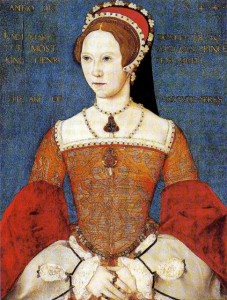 At Greenwich Palace in the early hours of 18th February 1516, Catherine of Aragon gave birth to a healthy baby girl, the future Mary I.
At Greenwich Palace in the early hours of 18th February 1516, Catherine of Aragon gave birth to a healthy baby girl, the future Mary I.
You can read more about her birth in my article The Birth of Mary I – 18 February 1516 and here are some other articles on Mary I:
- 30th September 1553 – Mary I’s Coronation Procession
- 1st October 1553 – Coronation of Mary I
- The Myth of Bloody Mary
- Mary I Facts
- Elizabeth and Mary Part 1
- Elizabeth and Mary Part 2
- Elizabeth and Mary Part 3
- The Coronation of Mary I
- Anne Boleyn and Bloody Mary